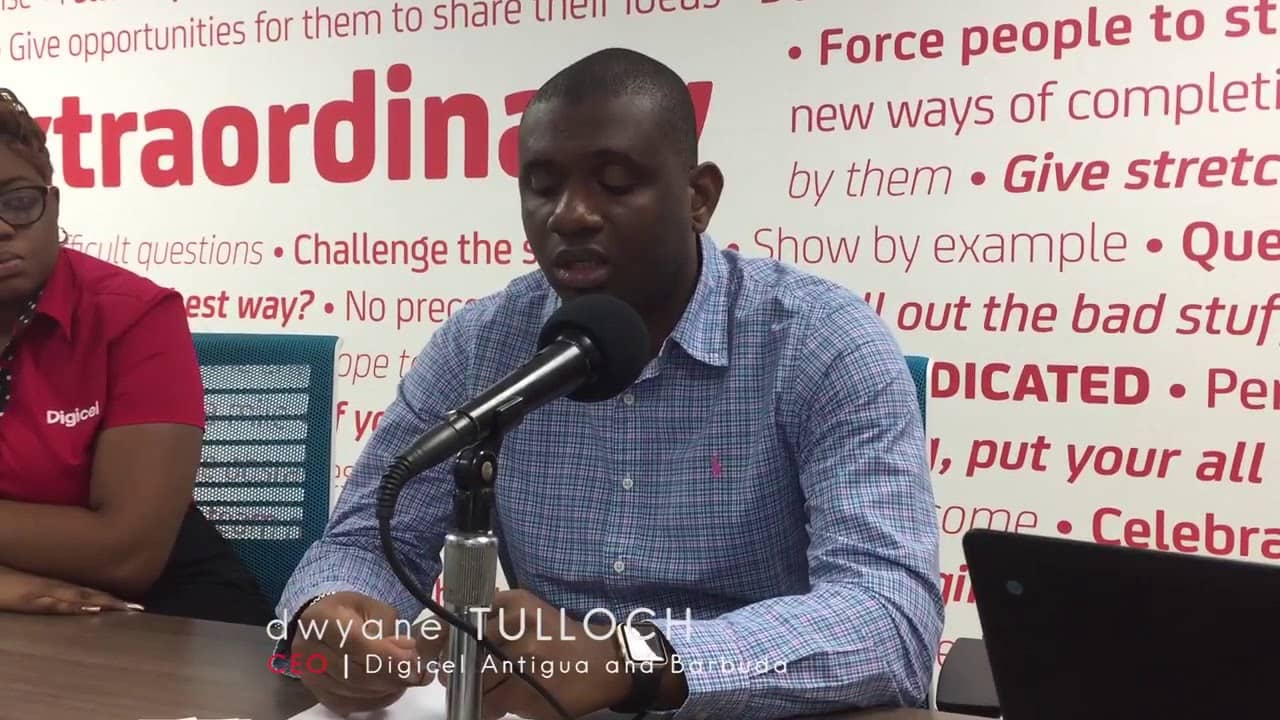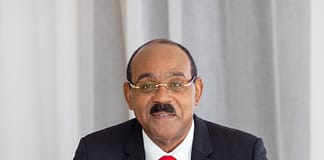
The Antigua and Barbuda government has expressed optimism that a solution could be reached soon in its efforts to have the state-owned Antigua Public Utilities Authority (APUA) share the existing 850 MHz spectrum with the two foreign telecommunication companies operating here.
In May, the Irish-owned telecommunications provider, Digicel, defended its decision to secure a High Court order preventing the government from sharing any of the 850 MHz spectrum it has been allocated with the APUA.
 Digicel said that it had taken the legal action because it wanted to shield its customers from “significant service disruption and a negative impact on coverage.” It said that APUA has almost twice as much spectrum as either of the other two operators in the market, despite having less than 25 per cent.
Digicel said that it had taken the legal action because it wanted to shield its customers from “significant service disruption and a negative impact on coverage.” It said that APUA has almost twice as much spectrum as either of the other two operators in the market, despite having less than 25 per cent.
But Information Minister Melford Nicholas, speaking to reporters following the weekly cabinet meeting, said “since our last appearance at the court, I am persuaded that we are in sight of a solution and that over the next coming weeks we will certainly work through paces to ensure that we can avoid any messy court circumstances or any untoward further issues.
“But I think that the government is justified in maintaining its stance that there has to be re-distribution of the low frequency spectrum,” Nicholas added.
A statement issued following the Cabinet meeting noted that two expert groups accompanied senior APUA officials to the Cabinet in order to address the issues of the sharing of the 850 megahertz band, and the Fiber-To-Home (FTH) challenge which the APUA has contemplated initiating.
It said both exercises are very costly, compelling APUA to bring expertise to the table to assist with their evaluations.
“The Cabinet was advised that the FTH exercise would be built on a platform that will initially allow for 25,000 customers, but could be expanded in due course to serve every household and business-place in Antigua and Barbuda if necessary. The APUA managers gave their full endorsement of the findings, including the cost.”
The statement said that the unidentified experts, who addressed the issue of the sharing of the 850 megahertz band, explained that the APUA had been completely closed-out from this important lower frequency band;
“APUA’s inclusion is a requirement if the national carrier is to deliver improved voice services. The experts explained that the reason people in their homes hear the base transmissions of sound trucks, even before they can hear the trucks’ music, is that the base is of very low frequency capable of piercing walls—much like the 850 megahertz band transmits low frequency signals,” the statement noted.
The 850 megahertz band is divided between the British telecom company, FLOW and Digicel, with the statement indicating that “one occupies 11 and the other the remaining 10 frequencies.
“APUA is therefore on an uneven playing field, or on no playing field at all. Further, the experts surmised, any disruption to the two firms likely to be caused by a re-distribution of the 850 band would be minimal. “The Cabinet reiterated its decision to direct APUA to secure an equitable distribution of the 850 megahertz band to include a portion of frequency to APUA. The APUA was also instructed to seek an end to the litigation which has been initiated by its competitors, as they seek to close-out APUA from a lucrative and necessary frequency” the statement added.
The statement said that Cabinet was also informed that the 1900 band and the 700 band, the low frequencies that are also likely to be used in the development of 5G broadcasts, have also been monopolized by APUA’s competitors, further excluding APUA from any viable future in the changing technology.
“That situation, the Cabinet agreed, is untenable,” the statement said.
Nicholas said what came out of the discussions with the experts “is that APUA has a share of the 700 spectrum that will facilitate their vulnerability to provide data services over their particular platform.
“I think the whole question of what happens now in reprogramming, re-farming, re-distribution of the bands that are affecting those two particular services are what will be the focus,” he added.
Advertise with the mоѕt vіѕіtеd nеwѕ ѕіtе іn Antigua!
We offer fully customizable and flexible digital marketing packages.
Contact us at [email protected]
















